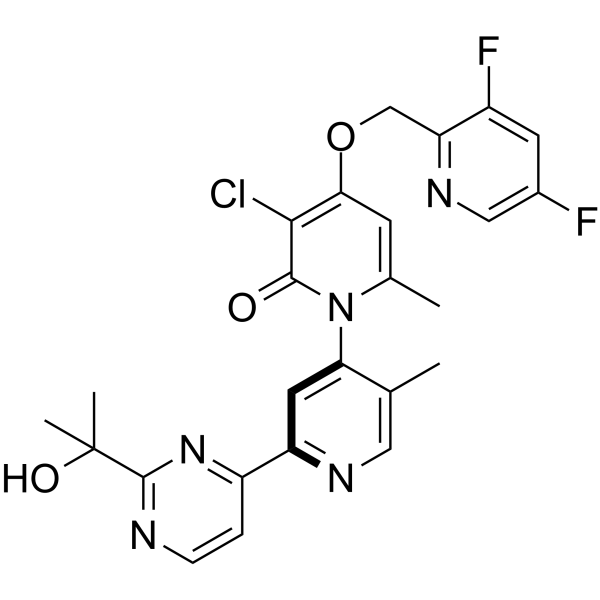1640282-42-3
| Name | Zunsemetinib |
|---|
| Description | Zunsemetinib (CDD-450) is an orally active and selective p38α mitogen-activated protein kinase-activated protein kinase 2 (MK2) pathway inhibitor. Zunsemetinib can be used for the research of immuno-inflammatory diseases[1]. |
|---|---|
| Related Catalog | |
| Target |
MK2[1] |
| In Vitro | Zunsemetinib (1 and 10 μM; 1 hour; WT and NOM ID BMMs) has no effect on NLRP3 expression, but decreases IL-1β expression by promoting IL-1β mRNA degradation[1]. Zunsemetinib (0.4 nM~1 μM; 16 hours; PBMC) reduces IL-1β secretion and promotes IL-1β mRNA instability[1]. Zunsemetinib selectively blocks p38α MAPK activation of the proinflammatory kinase MK2 while sparing p38α activation of other effectors such as PRAK and ATF2. Zunsemetinib inhibits in vitro osteoclast formation induced by RANKL[1]. RT-PCR[1] Cell Line: WT and NOM ID BMMs Concentration: 1 and 10 μM Incubation Time: 1 hour Result: Had no effect on NLRP3 expression, but decreased IL-1β expression by promoting IL-1β mRNA degradation. |
| In Vivo | Zunsemetinib (1,000 ppm; p.o.) blocks LPS-induced TNF-α expression persisted for up to 4 weeks after dosing[1]. Zunsemetinib (10 and 20 mg/kg; p.o.) increases bone density[1]. Zunsemetinib prevents osteopenia in NOM IDc mice through inhibition of osteoclastogenesis[1]. Animal Model: 8-week-old WT female mice[1] Dosage: 1,000 ppm Administration: P.o. Result: Blocked LPS-induced TNF-α expression persisted for up to 4 weeks after dosing. Animal Model: Rats[1] Dosage: 10 and 20 mg/kg Administration: P.o. Result: Increased bone density. |
| References |
[1]. Zunsemetinib (ATI-450) – Investigational oral MK2 pathway inhibitor |
| Molecular Formula | C25H22ClF2N5O3 |
|---|---|
| Molecular Weight | 513.92 |
